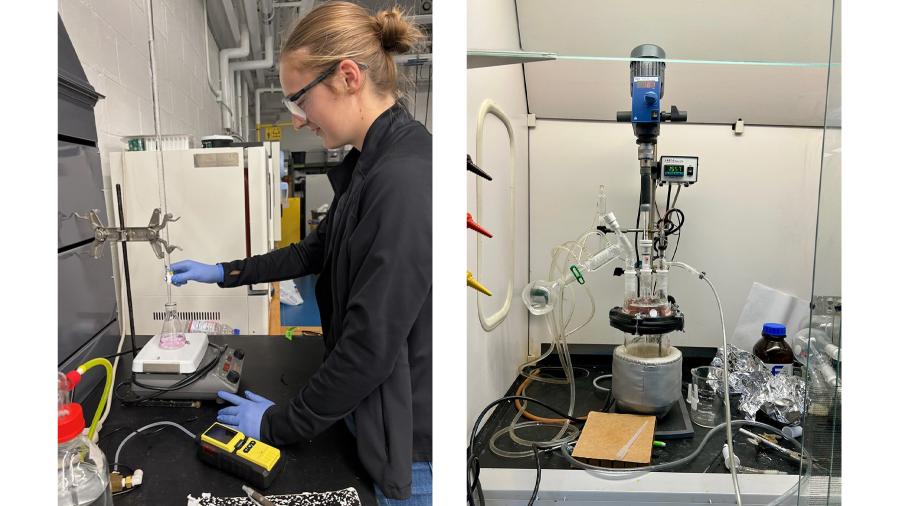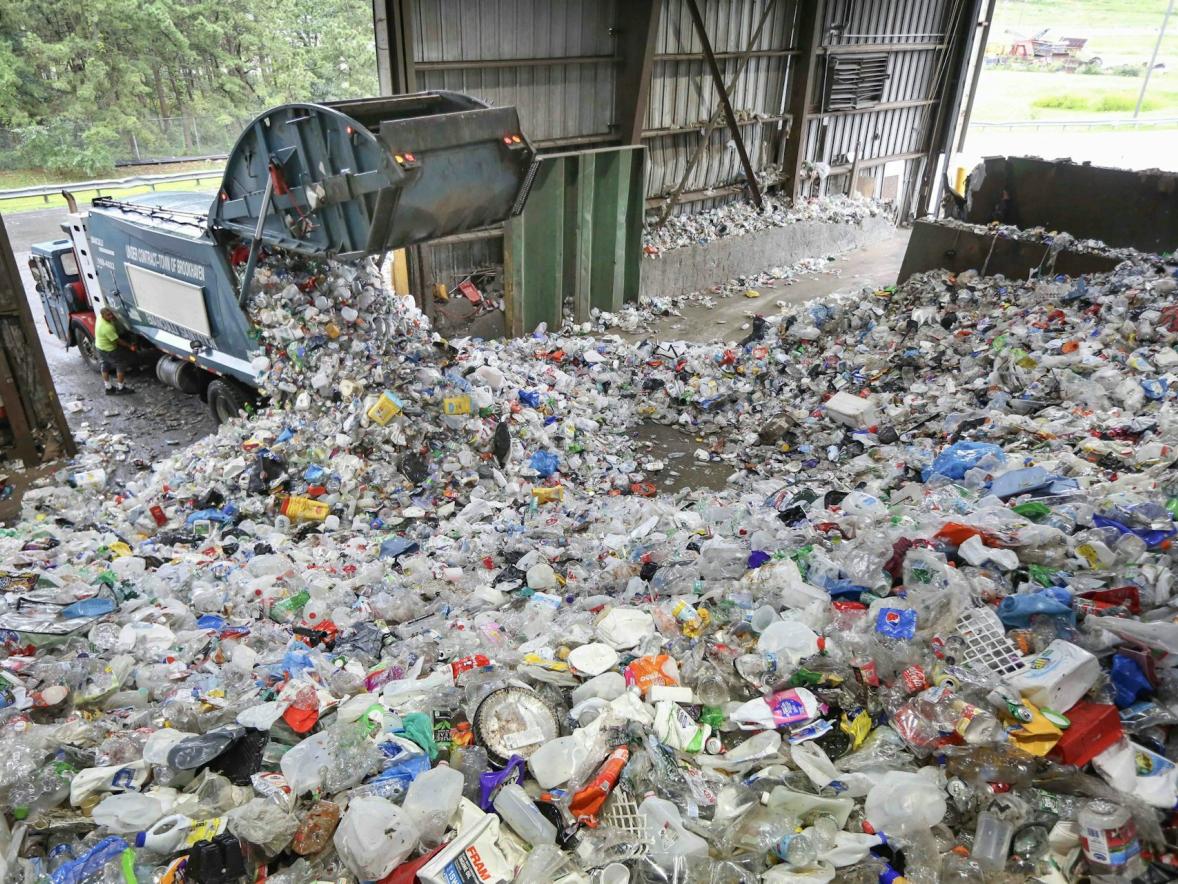As Wisconsin’s Polytechnic University, UW-Stout emphasizes lifelong applied learning for its students and faculty alike, including promoting excellence in teaching and research through sabbaticals.
Sabbaticals enable recipients to engage in intensive study to become more effective teachers and scholars and to enhance their services to the university.
During the 2024-25 academic year, plastics engineering Professor Wei Zheng conducted sabbatical research to advance sustainability in the field of plastics, focusing on the biodegradation of plastic materials and the recycling of thermosetting materials.
Zheng successfully designed and built a biodegradation system, calibrated it using cellulose, and tested a biodegradable polymer, working with mechanical engineering and plastics engineering double major Molly Garber, of Blaine, Minnesota, and chemistry major Madeline Candline, of Pooler, Georgia. They also scaled up the synthesis and produced sufficient “green” thermosetting resin material for reverse crosslinking experiments.

“The project aims to benefit not only UW-Stout students but also to positively influence the general public’s perception of plastics,” Zheng said. “I hope this work will have a multi-level impact on the field of plastics engineering, quantifying the biodegradation of environmentally friendly materials and developing viable methods for reverse crosslinking to address the critical needs in today’s plastics industry.”
Many biodegradable plastics are made from renewable resources. Biodegradable plastics help to reduce waste in landfills, resulting in lower greenhouse gas emissions and fewer microplastics, leading to a cleaner environment.
Thermosetting plastics are polymers that undergo a chemical reaction when heated. Once cured, they cannot be remelted or reshaped, posing a challenge in the recycling process. However, plastics engineers and chemists researching the reverse crosslinking process are developing ways to break the chemical bonds, allowing thermosetting plastics to be recycled.
Zheng plans to integrate the accumulated knowledge into the plastics engineering program curriculum and design a pamphlet to promote sustainability within the community.
A setback Zheng encountered involved difficulties in removing the water byproduct during synthesis, which caused a few failed attempts and delayed progress. “In the meantime, I had the opportunity to supervise a capstone project, which involved the characterization and molding of a common plastic material. The group investigated the pressure dependence of viscosity and its impact on molding and simulation,” she said. “The project was highly successful and received enthusiastic praise from our advisory board.”
The importance of a polytechnic education
Garber and Candline think it was incredibly rewarding to work with Zheng and to have an interdisciplinary research experience across their fields of plastics engineering and chemistry.
“Working with Wei and Madeline was one of the most transformative parts of my college experience,” Garber said. “The research challenged me to think critically, collaborate effectively, and approach problems with curiosity. What made it especially valuable was the hands-on nature of the work. Being able to identify issues in real time, make adjustments, and witness the results firsthand gave me a deeper understanding of the process and a stronger sense of ownership. I not only deepened my understanding of the subject but also grew personally and gained skills that I know will carry me far beyond the classroom.”
“This experience truly shows the importance of a polytechnic education,” Candline added. “Most of my chemistry classes have focused on how different substances interact with each other and their applications within the confines of chemistry. With this project, I was given the opportunity to apply my knowledge of chemistry to real-world problems outside of my own field of study. It was really interesting to see the connection between plastics and chemistry. This experience helped me learn more about potential directions my degree can take me.”
Candline has also assisted Chemistry Professor Ana Magdalena Vande Linde with research, providing her with opportunities to attend national presentations and conferences alongside undergraduate researchers and professionals from across the country.
“Working on research with faculty has been beneficial to my college career. Research gives students hands-on learning opportunities and helps build lasting connections with fellow undergraduate researchers, faculty and professionals in the field,” she said. “If anyone is ever debating if they should join a faculty member for research, I always say to do it. You never know where the opportunity will take you, and no matter what, you will learn something from the experience.”
Candline presented her own research, “Changes in Chemical Properties of Surface Waters in Dunn County,” under the advisement of Vande Linde, at the National Conference of Undergraduate Research, in Pittsburgh last April. She was one of several UW-Stout students to present at NCUR, the largest symposium of its kind in the U.S.
Candline will graduate in spring 2027 and is interested in materials chemistry, pharmacology and nuclear chemistry. Garber will graduate in spring 2028 and plans to work in the plastics medical industry.
UW-Stout’s Robert F. Cervenka School of Engineering is home to five ABET-accredited programs, including computer and electrical engineering, engineering technology, plastics engineering, and a bachelor’s program in packaging. A master’s in manufacturing engineering is available on campus or online.
Plastics engineering graduates report an average starting salary of $70,000 with 100% employment, according to Career Services’ First Destination Report.





